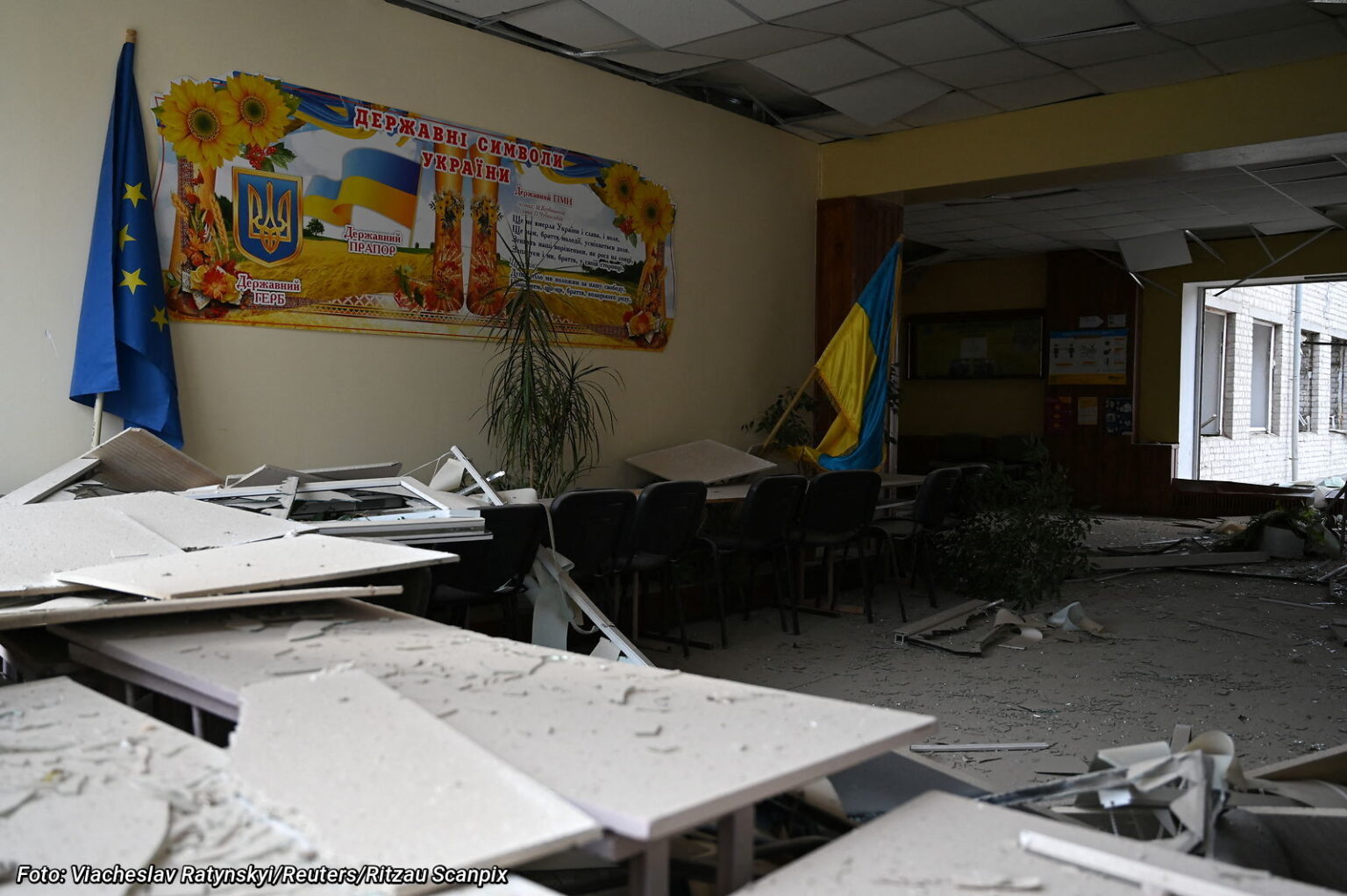Goldman Sachs: ”Credit Check-In: Geopolitics and Implications: ”A broader Russian invasion of Ukraine has added uncertainty to an already complex investment backdrop of high inflation, hawkish policy and extended valuations. Economic and financial market implications will depend on the severity of the Russia-Ukraine conflict and the response of major economies. Looking ahead, we are mindful of the potential for a moderation in growth due to a fading fiscal impulse, a squeeze on consumer incomes from high inflation and geopolitically-motivated tightening in financial conditions. This month we discuss implications for credit markets and outline where we see relative value opportunities opening up.” Kilde.
Danske Bank: We see mainly three channels through which the crisis will weigh on growth – especially in Europe: ”First, the heightened uncertainty is set to weigh on business sentiment in the short term, but unless the crisis drags out for a long time, we believe the drag will be fairly limited and short-lived. Second, the rise in oil and gas prices will work to erode consumers’ purchasing power and increase costs for companies. It also adds to the upward inflation pressure limiting central banks’ ability to accommodate the shock. How big this effect is, will depend on Russia’s retaliation on gas deliveries. Finally, growth will be hit from direct trade with Russia in a negative feedback from the sanctions. Trade with Russia has declined over the years, though, which should dampen the hit to exports.” Kilde.
Handelsbanken: The EU’s Response to Russian Aggression and Its Costs: ”War has broken out in Europe, bringing with it devastating humanitarian consequences. Our focus on the economic effects of these point to a delicate attempt by Western powers to target Russia’s economy without harming European sourcing of Russian energy. However, sanctions could lead to banks avoiding Russian counterparties altogether, potentially jeopardising the energy trade. Moreover, even if Russian energy to Europe keeps flowing, higher commodity prices pose significant risks to both European inflation and the growth outlook. Separately, significant residual risks such as conflict spillover effects and refugee flows leaves our forecasts fraught with uncertainty once again.” Kilde.
ING: The global implications of Ukraine’s tragedy: ”Given the horrendous human tragedy in Ukraine, it seems almost crass to talk about global economic implications right now. But that’s our job. The international sanctions against Russia will impact people across the globe. Giving a preliminary assessment of that is what we’re focusing on in March’s ING Monthly Content – A closer look at the sanctions – A more general assessment of economic implications.” Kilde.
Natixis: Unprecedented western sanctions to hit russian economy hard: ”Since 26 February,the United States and European countries have announced a series of severe economic, financial, and political sanctions in retaliation for Russia’s military invasion of Ukraine, with the aim of suffocating the Russian economy. Although many of the sepenalties have already been applied to other countries (such as Iran or Venezuela), Russia’s integration and weight in world trade gives the western restrictive measures an unprecedented character.” Kilde.
Unicredit: Europe’s vulnerability to Russian gas: ”Russia’s invasion of Ukraine has driven energy costs higher and exposed Europe’s reliance on Russian energy, particularly natural gas. In addition to the negative effects of higher prices, the security of supply has come into sharper focus. Our Chart of the Week indicates the exposure of European countries to Russian gas supply, proxied by the share of Russian gas in gross energy consumption. It gives an indication of how European countries would be affected if Russia were to cut gas supplies. Overall, Russian natural gas accounts for around 8% of gross inland energy consumption in the EU and the euro area. Italy has a high share of gas in gross energy consumption, but it sources a lot of its gas from outside Russia, notably from North Africa, so its dependency on Russian gas is about the same as in Germany, at around 14% of gross energy consumption. France, due to its high share of nuclear power and gas sourced from Norway and LNG (liquefied natural gas), is hardly dependent on Russian gas supplies, and Spain not at all because it gets gas from other sources (LNG and North Africa).” Kilde.
MWL
Intro-pris i 3 måneder
Få unik indsigt i de vigtigste erhvervsbegivenheder og dybdegående analyser, så du som investor, rådgiver og topleder kan handle proaktivt og kapitalisere på ændringer.
- Fuld adgang til ugebrev.dk
- Nyhedsmails med daglige opdateringer
- Ingen binding
199 kr./måned
Normalpris 349 kr./måned
199 kr./md. de første tre måneder,
herefter 349 kr./md.
Allerede abonnent? Log ind her











